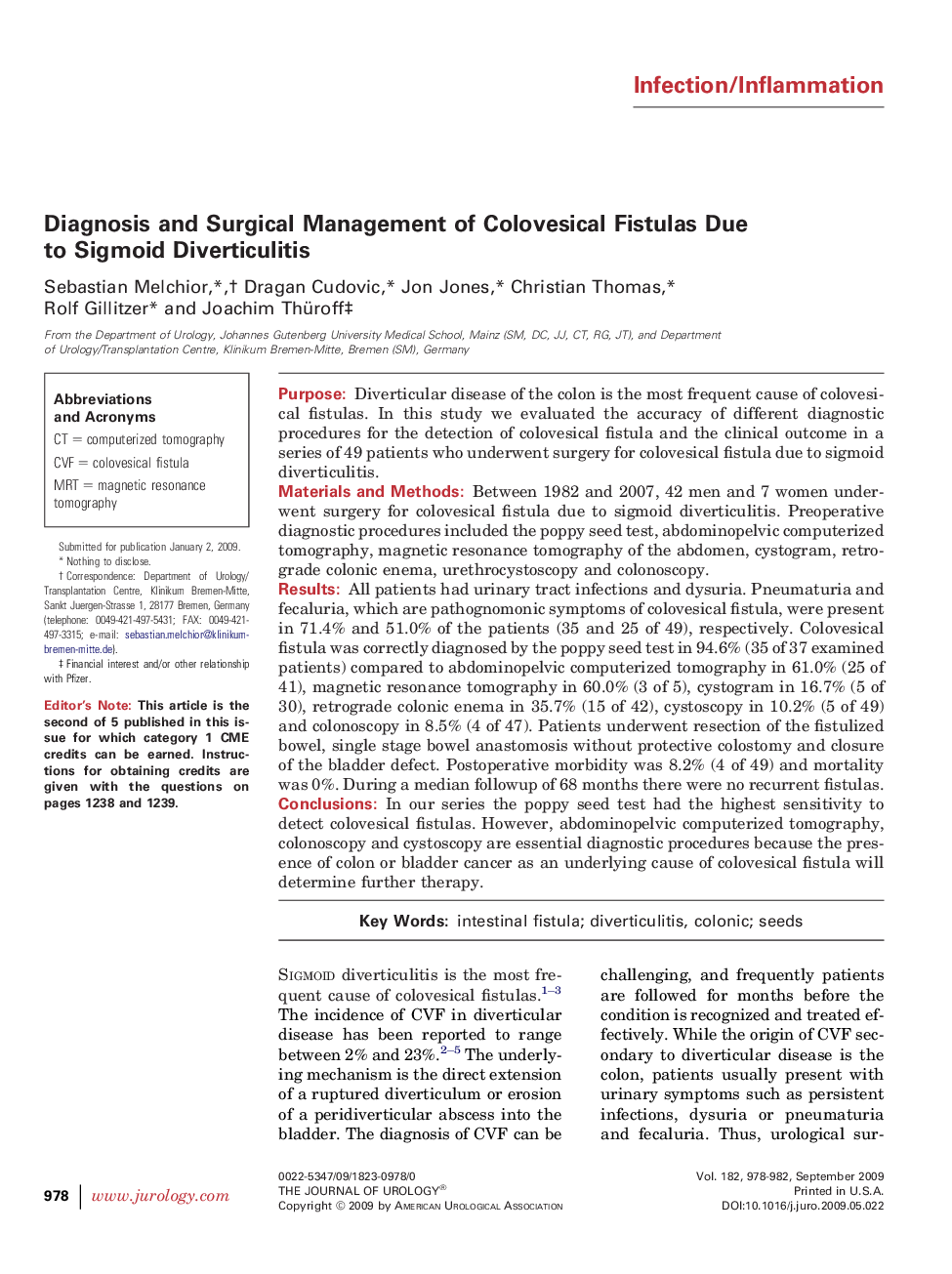| کد مقاله | کد نشریه | سال انتشار | مقاله انگلیسی | نسخه تمام متن |
|---|---|---|---|---|
| 3869058 | 1598975 | 2009 | 5 صفحه PDF | دانلود رایگان |

PurposeDiverticular disease of the colon is the most frequent cause of colovesical fistulas. In this study we evaluated the accuracy of different diagnostic procedures for the detection of colovesical fistula and the clinical outcome in a series of 49 patients who underwent surgery for colovesical fistula due to sigmoid diverticulitis.Materials and MethodsBetween 1982 and 2007, 42 men and 7 women underwent surgery for colovesical fistula due to sigmoid diverticulitis. Preoperative diagnostic procedures included the poppy seed test, abdominopelvic computerized tomography, magnetic resonance tomography of the abdomen, cystogram, retrograde colonic enema, urethrocystoscopy and colonoscopy.ResultsAll patients had urinary tract infections and dysuria. Pneumaturia and fecaluria, which are pathognomonic symptoms of colovesical fistula, were present in 71.4% and 51.0% of the patients (35 and 25 of 49), respectively. Colovesical fistula was correctly diagnosed by the poppy seed test in 94.6% (35 of 37 examined patients) compared to abdominopelvic computerized tomography in 61.0% (25 of 41), magnetic resonance tomography in 60.0% (3 of 5), cystogram in 16.7% (5 of 30), retrograde colonic enema in 35.7% (15 of 42), cystoscopy in 10.2% (5 of 49) and colonoscopy in 8.5% (4 of 47). Patients underwent resection of the fistulized bowel, single stage bowel anastomosis without protective colostomy and closure of the bladder defect. Postoperative morbidity was 8.2% (4 of 49) and mortality was 0%. During a median followup of 68 months there were no recurrent fistulas.ConclusionsIn our series the poppy seed test had the highest sensitivity to detect colovesical fistulas. However, abdominopelvic computerized tomography, colonoscopy and cystoscopy are essential diagnostic procedures because the presence of colon or bladder cancer as an underlying cause of colovesical fistula will determine further therapy.
Journal: The Journal of Urology - Volume 182, Issue 3, September 2009, Pages 978–982